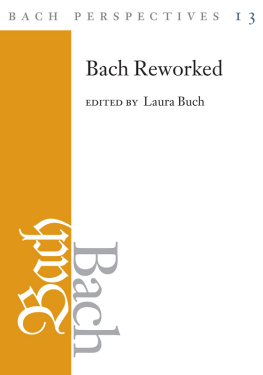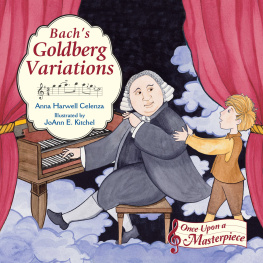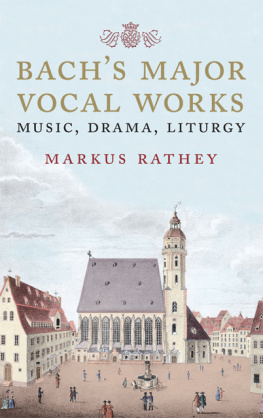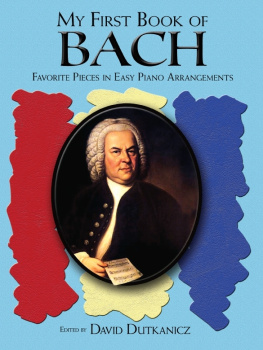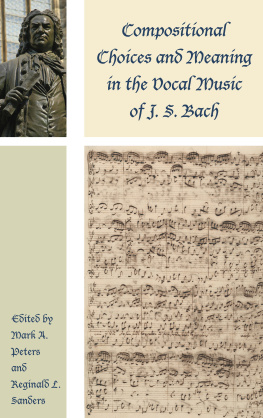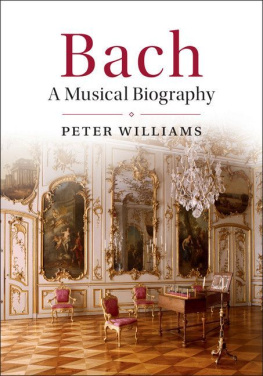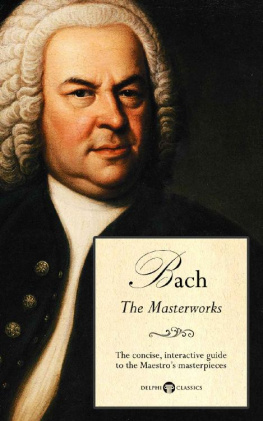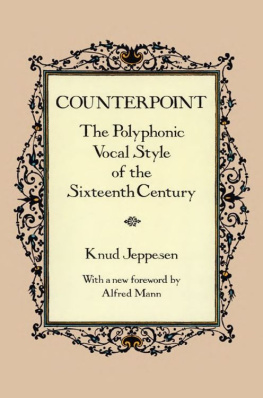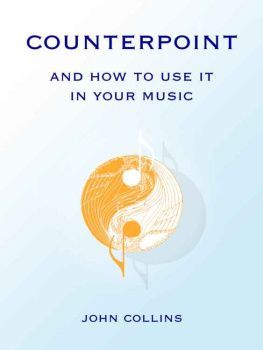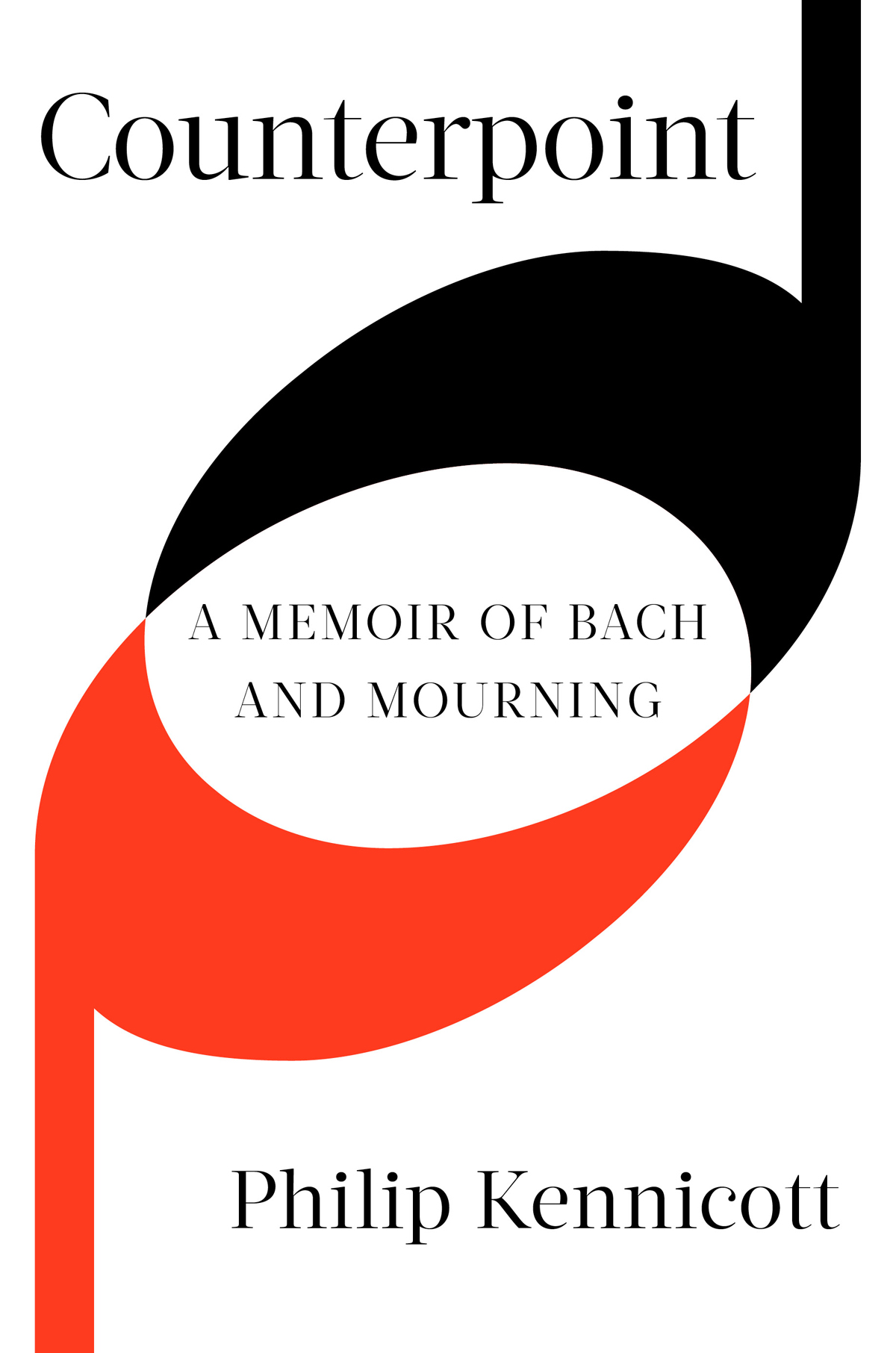Contents
Guide
Page List
COUNTERPOINT :
A Memoir of Bach
and Mourning
PHILIP KENNICOTT

Copyright 2020 by Philip Kennicott
All rights reserved
First Edition
For information about permission to reproduce selections from this book, write to Permissions, W. W. Norton & Company, Inc., 500 Fifth Avenue, New York, NY 10110
Excerpt from Selected Poetry of Rainer Maria Rilke by Rainer Maria Rilke, edited and translated by Stephen Mitchell, translation copyright 1980, 1981, 1982 by Stephen Mitchell. Used by permission of Random House, an imprint of Penguin Random House LLC. All rights reserved.
Excerpts of contemporaneous Bach sources from The New Bach Reader: A Life of Johann Sebastian Bach in Letters and Documents by Hans T. David and Arthur Mendel, editors, revised by Christoph Wolff. Copyright 1998 by Christoph Wolff. Copyright 1966, 1945 by W. W. Norton & Company, Inc. Copyright 1972 by Mrs. Hans T. David and Arthur Mendel. Used by permission of W. W. Norton & Company, Inc.
For information about special discounts for bulk purchases, please contact
W. W. Norton Special Sales at specialsales@wwnorton.com or 800-233-4830
Jacket design: Yang Kim
Book design by Abbate Design
Production manager: Anna Oler
The Library of Congress has cataloged the printed edition as follows:
Names: Kennicott, Philip, author.
Title: Counterpoint : a memoir of Bach and mourning / Philip Kennicott.
Description: First edition. | New York : W. W. Norton & Company, 2020. | Includes bibliographical references.
Identifiers: LCCN 2019027075 | ISBN 9780393635362 (hardcover) | ISBN 9780393635379 (epub)
Subjects: LCSH: Bach, Johann Sebastian, 16851750Appreciation. | Bach, Johann Sebastian, 16851750. Goldberg-Variationen. | Kennicott, Philip.
Classification: LCC ML410.B1 K3 2020 | DDC 786.2092 [B]dc23
LC record available at https://lccn.loc.gov/2019027075
W. W. Norton & Company, Inc., 500 Fifth Avenue, New York, N.Y. 10110
www.wwnorton.com
W. W. Norton & Company Ltd., 15 Carlisle Street, London W1D 3BS
F or beauty is nothing but the beginning of terror, which we still are just able to endure, and we are so awed because it serenely disdains to annihilate us.
_______________
RAINER MARIA RILKE,
The First Duino Elegy,
translated by Stephen Mitchell
COUNTERPOINT
For Marius
Contents
I N THE SUMMER it became clear that chemotherapy would kill my mother before the cancer did. She was making frequent trips to the emergency room, her body was weak, and still she had months to go before concluding the drug trial that was her last, best hope against the disease. She was angry and exhausted, and near despair, and finally she agreed with her doctor and her family that it was time to quit the drugs and reckon with death. But first she was allowed to live again: Within a few weeks, the chemicals cleared out of her body and she came back to life. After many bedridden months, she began using her walker and then felt well enough to send away the hospice nurses. She would rise in the mornings and take a seat by the large windows looking onto the hills outside her home, and wait for birds to come to the several feeders she tended there. By early autumn, she and my father left for one last trip to Arizona, where they had spent their winters, among friends, in the sun, enjoying retirement.
The call came a week before Thanksgiving. The cancer had regrouped, and now it was time for her to return home and finish the dying. My mother begged me to stay away and not waste vacation days on a trip home for a last visit. I dont want you to see me like this. She had a dutiful sense of self-denial, but the request was more theatrical than sincere, and I brushed it off, just as I had all the others since she became ill three years earlier. I found a ticket on the internet and paid extra for the option to change my return date. Scrolling on the sides of the online travel sites were advertisements for Caribbean vacations and cruise packages, images of turquoise water and beautiful, carefree people in swimsuits.
I realized, as I was packing, that when I put these shirts back into the closet, my mother would be dead, and with that strange realization, almost every trivial thing I did took on a sense of tragic finality. Should I pack this sweater, which she once said she liked? It would be the last time shed see it. I didnt know how long it would be, days or maybe weeks, but when I returned home a new, unchangeable fact would have been established in my life, a connection that had existed for as long as I had would be sundered. I didnt think much about the clothes I was folding, but I knew I had to bring two essential things: a pair of hiking boots, and some music to keep me company, and sane, in the large, empty house where she was dying.
Without much conscious thought, I threw a recording of Bachs Sonatas and Partitas for Solo Violin into my traveling bag. I had no particular reason to pick this music, though I was mildly interested in the young violinist who was brave enough to record these demanding, dense, and complicated works so young in his career. Perhaps I was drawn to the cover of the recording, a black-and-white image of a soulful man with his hands seemingly clasped in prayer above the familiar, feminine curves of his violin. It had also been a long time since I had listened to these works closely and I was probably happy to bring music that I remembered fondly, but vaguely, great works that remained still somewhat unfamiliar. Music that you have lived with for a long time becomes cluttered with memory and association. For this particular journey, I wanted to pack light.
Pound for pound, Bach is also good traveling music. One or two CDs contain more to occupy the mind than hours of lesser stuff, and it is more emotionally efficient than any other music, with no filler or extraneous matter. For some reason I cant explain, Bach is suited to all my moods, no matter where I am, no matter what mode of life I find myself in, work or play, thriving, surviving, or wallowing in lassitude. His music delights me on the beach as much as it sustains me in a gray desert landscape at the end of November. I could think of a hundred reasons why, while I was there, I wouldnt want to play Beethoven, Brahms, or Wagner; but I couldnt imagine a single reason why I would resist Bach.
When I arrived, my parents house was quiet, and everyone walked on tiptoes and spoke in whispers. The only noise came from the television in my mothers room, always on, the flickering light clearly a consolation through the night as she passed in and out of consciousness. When she was awake I would sit with her; but much of the time she was lost to the morphine. I never listened to music while I was with her, afraid that I might miss some marker of pain, or signpost of her progress toward death. I tried to tune out the television, droning in the background, and listen to her breathingstertorous, said one of the hospice nurses brightly, as if pointing out a rare flower on a walk through the forest. Reflected on the wall above my mothers head, the inanity of the nightly news, the animated weatherman, the frantic banter of the pretty anchorwomen parsing murder, traffic, and parades, was distilled to a dance of blue forms and abstractions. When I looked directly into the wide, flat screen only a few feet away, into this portal to a world that seemed infinitely remote and meaningless, I began to feel untethered from reality.


